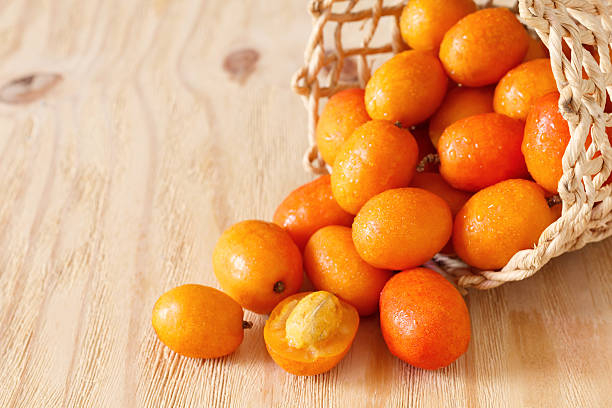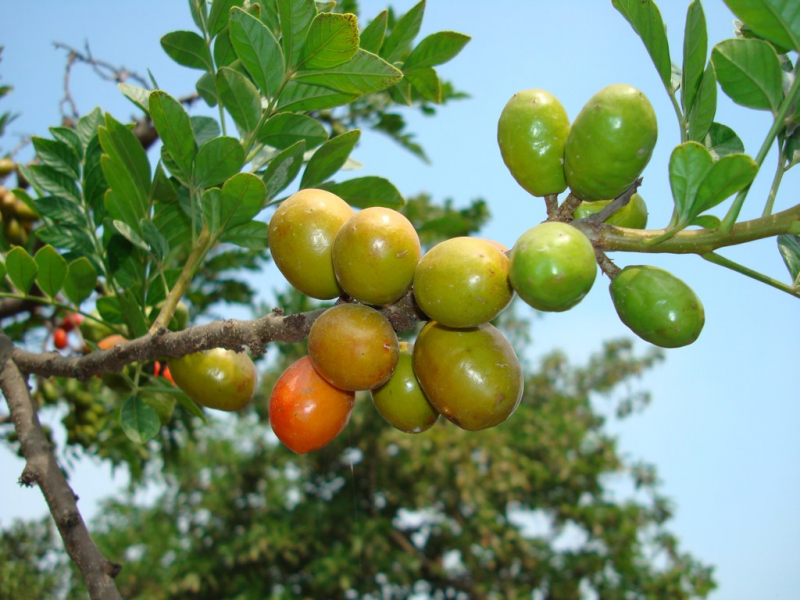Ciruela

Ciruelas, botanically classified as Spondias purpurea, are small fruits that grow on deciduous trees that can reach up to fifteen meters in height and are members of the Anacardiaceae or cashew family. Also known as Jocote, Spanish Plum, and Mombin, there are two main varieties of Ciruela fruits, one red and one yellow, and these fruits are widely popular in Central America for their sweet-tart, juicy flavor. Ciruela fruits are available year-round, with varying peak seasons in tropical regions around the world.
Averaging 2 to 5 centimeters in diameter, ciruela fruits are tiny and elongated, obovoid, or oblong in shape. The smooth, thin, waxy, and shiny fruit skin is green when young and changes to yellow or brilliant red when ripe depending on the type. The fruits can grow singly or in small groups. The yellow pulp is stiff, acidic, and sour underneath the skin when unripe, and sweet, soft, and juicy when ripe. The flesh also contains a sizable, bitter, and fibrous white seed that is tightly adherent and inedible. Fruits from the ciruela tree are soft and supple, and they taste astringent, sweet, and plum-like.











